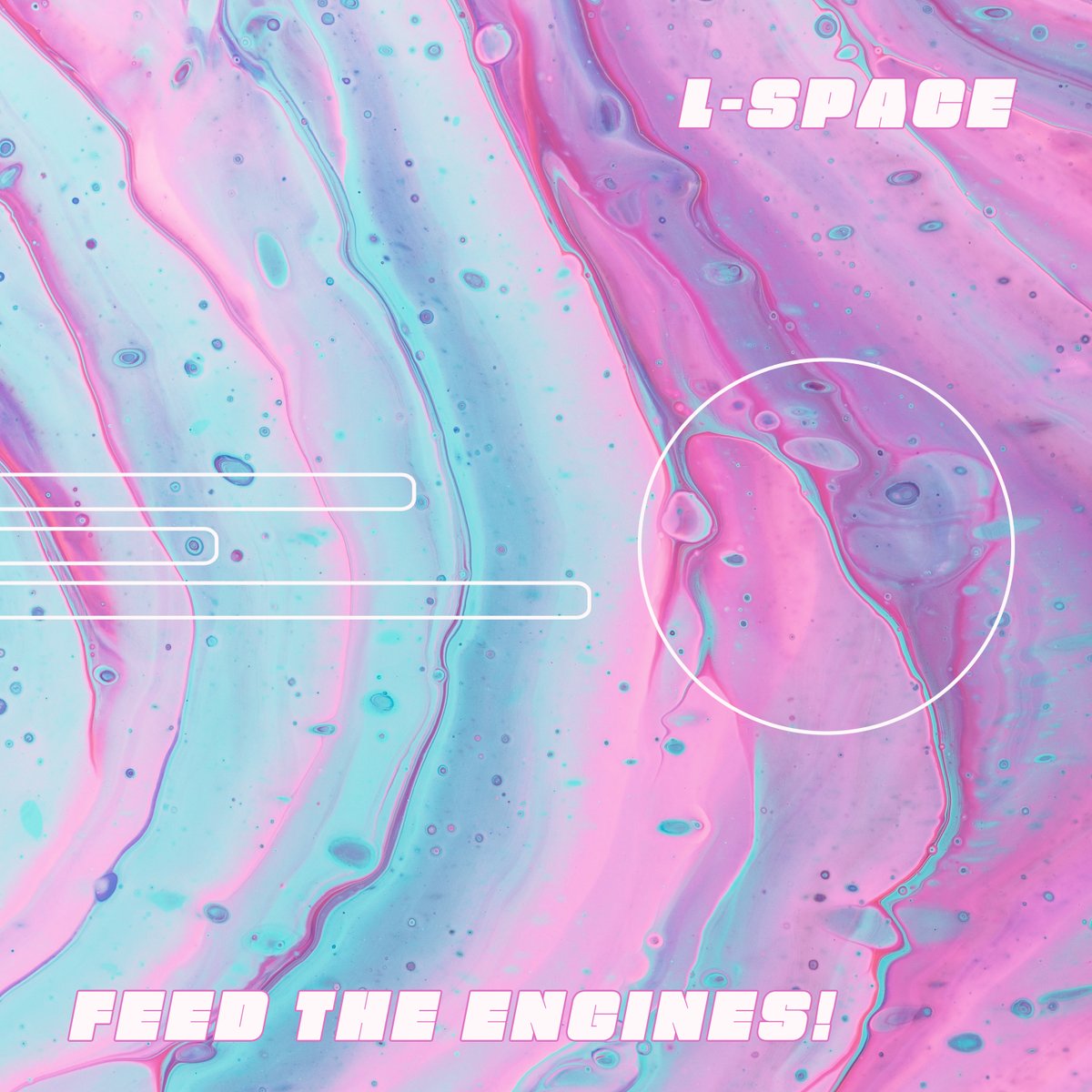‘Let me right at the outset define what I mean by alienation,’ a clear Glaswegian voice rings out at the mid-point of L-space’s new album. ‘It’s the cry of men who feel themselves the victims of blind economic forces beyond their control. It’s the frustration of the great mass of ordinary people excluded from the processes of decision making. It’s the feeling of despair and hopelessness that pervades people who feel with every justification that they have no real say in shaping or determining their own destiny.’
It’s a rousing oratory. The voice goes slowly, hammering each word home and true. It’s from a speech by Jimmy Reid, a legendary Scottish trade union leader, made in 1972. You can feel the tang of cigarette smoke laced with ozone from the static discharge of a room-full of polyester shirt cuffs. Gracing L-space’s new record, Feed The Engines!, an album about late-stage capitalism and being tired all the time, it’s interesting how pertinent, how of-our-moment, this sounds. This is not the futuristic chillwave I was promised.
Their last album, Music for Megastructures, billed as the soundtrack to a city that doesn’t exist, was an entirely instrumental, high-concept romp around an imaginary megatropolis. We followed its denizens as they worked, played and died a little bit more every day. The songs on Feed The Engines! continue exploring these themes, but aren’t pretending we’re in an imaginary place so much these days.
‘Unit of Production‘, the track that follows the Jimmy Reid speech, is about the back-ache, disconnect and melancholy exhaustion that accompanies a job in the service sector. ‘Karoshi’ is a sweet flight of disco-whimsey that takes its inspiration from the Japanese word for death from overwork and calls for a revolution that it’s just too terminally tired to bring about. ‘Diamonds Are For Breakfast’ explores the sinking feeling of knowing that you’re deeply embedded in the system you’d like to overthrow and cross-references itself with ‘Unit of Production’ while it orders a coffee and dreams of its toothbrush washing up on a beach. The future turns out to be such a disappointment that we’re not even wondering why we didn’t get jetpacks anymore. We’d just like a sit down and a hot beverage that doesn’t make us feel guilty and ashamed.
Lily Higham’s vocals convey just the right level of agit-pop dreaminess, like a more ethereal version of artists like Ladytron or Broadcast. Layers of harmony and counter harmony in the vocal mix jostle with synth arpeggios and cold electronic percussion. They don’t always get it completely right. I feel like I could live without the first half of ‘Extinctathon Champions 2020’ which really only picks up when the song dies away and everything else plunges off into an abstract hinterland of theremins and spaced-out, shoe-gazing fuzz which suggests that there’s a whole other world they’re curious about. I’d also question the need for the puns. Even occasional puns. Guys, a song about a world where adverts are beamed directly into sleeping brains does not need a lyric about rapid buy movement. The line about the collectable unconscious isn’t a problem, but you can go too far. It’s hard to resist, but trust me, I remember Carter U.S.M. and can tell you, sometimes it’s funnier without the flashing blade of wordplay. Just ask Philip K. Dick.
When it does get it right and mostly it does, Feed The Engines!, is superb and even when it’s a bit wonky it’s well worth your attention. The tunes stick in your head after everything else has faded away and the last track is quite a summation to the catalogue of ideas that’s gone before. In ‘No-one Lives Here Anymore’ delicate piano runs accompany a poetic sketch about what the last survivors of humanity see as they contemplate the ruined city: ‘Beyond the fire is where we grew up / we used to have names for all the trees / now we just know / what kills us, what won’t / nothing much matters here.’
Have we got to the stage where we long for the apocalypse? Have we all read Margaret Atwood’s Oryx and Crake books and decided that on the whole it doesn’t sound too bad? That’s the question that this wearily cohesive piece of work articulates. It’s a very cleared eyed and adroit analysis of the world and it will be interesting to see where they go from here. This will be the last release under the auspices of L-space, as the band will be continuing as a duo and touring in the spring under the new name of Post Coal Prom Queen. They’ll still be playing the L-space stuff, but with its eschatological sign-off Feed The Engines! feels like an ending. Hopefully it’s just the chapter and not the book, because L-space / Post Coal Prom Queen are bursting with ideas and stories to tell, have an ear for a neat tune and enough of a sense of humour that none of this gets too hard to look at.




